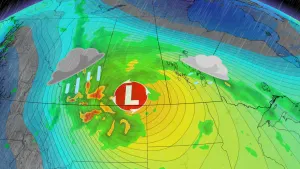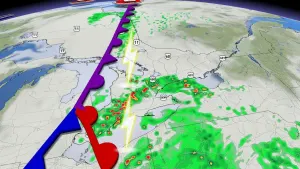
Ocean temperatures off N.S. dip after record-breaking year
Following a season of record-breaking surface temperatures last year, ocean temperatures in the waters around Nova Scotia have moved back to normal this summer, says the Department of Fisheries and Oceans.
However, it's unclear if this is a trend, said research scientist Dave Hebert.
In 2018, DFO found winter sea surface temperatures from the Scotian Shelf to the Bay of Fundy were above normal. There were also record-breaking temperatures in August and September.
However, DFO's spring survey conducted in April 2019 differed from last year's results.
"First, the surface was really cold because we had a really cold winter. It takes time for the ocean to heat up," Hebert said. "The deeper water seemed to be back to the normal temperature."
HOW HISTORICAL AVERAGE TEMPERATURE IS CALCULATED
DFO gauges "normal" by measuring against the average ocean temperature for 1980-2000.
"It seems to be sort of back to normal that way, especially on the western part of Nova Scotia," Hebert said.
Ocean surface temperatures are closely related to air temperature. A recent heat wave in July and early August raised ocean temperatures accordingly, but as the hot weather moves out, the water is also adjusting.
"Temperatures off Halifax are sort of still slightly above normal, but not as warm as it has been in the last couple years," Hebert said.
"We sort of had a growing temperature since 2010. It peaked around 2012 to recently. It sort of plateaued. And it has been decreasing down a bit — not a lot — so we don't know if it's a trend or not."
INFO COMING SOON ON DEEP OCEAN WATER
DFO staff continue to collect temperature data on both the ocean surface and deeper waters. They sample the waters off Halifax weekly using a small boat and release an ocean glider approximately once a month.
As well, the annual fisheries survey of the Scotian Shelf was just completed on Sunday and Hebert hopes to analyze that data soon.









